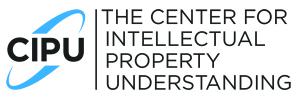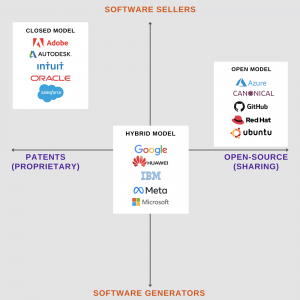Report: Businesses that Generate Software Must Decide When Open-Source or Patent Protection is Right for them
The latest summary report from the Center for Intellectual Property (CIPU) draws on more than 50 written and expert sources
An increasingly digital world that some call the Fourth Industrial Revolution is turning most businesses that conduct R&D into software developers, whether or not they consider themselves to be in the business of selling or leasing software solutions. These and other findings can be found in 'To Patent or Not to Patent:? Understanding the Open-Source Option for Businesses,' the latest summary report from the Center for Intellectual Property Understanding, an independent non-profit.
Some companies will elect to patent the many inventions that result from their R&D that are embodied in software, while others will choose to keep them "open" for others to use and improve, including competitors. It is not necessarily generosity that encourages inventors to decline patents but an appropriate business model.
Key takeaways from 'To Patent or Not to Patent' include:
• Businesses must decide early whether or not they want to use IP rights for their software developments.
• The choice whether to pursue patents or open-source should be based upon a company’s products and business model.
• Software patenting and open source business models can co-exist successfully.
• Software patent policy is informed by misguided scholarly research on "software patents," a term that has no clear definition, legal or otherwise.
• Firms conducting R&D that choose to patent software need to advocate for better eligibility in order to protect their interests.
"The highest estimates say that nearly two-thirds of all U.S. patents can be embodied in software," the report states. "The U.S. Patent and Trademark Office grants nearly 300,000 patents each year, so according to whichever dataset is trusted, anywhere from 75,000 U.S. patents to 200,000 U.S. patents are granted each year covering software innovations.
"A company’s choice to pursue either patent or copyright protections for their code, or to make their code available to others on an open source basis, is of critical importance to the success of that company. It’s a choice that should be highly informed by the model of distribution which a particular business intends on employ, and not based upon personal beliefs whether software should be patentable or not."
The report finds, the policy debate surrounding the patentability of software or coded inventions has been misinformed by a significant amount of academic research that purports to be empirical but suffers from foundational issues in how software patents are defined.
As a practical matter for businesses, there are several takeaways. If a business of any size plans on patenting to protect its research and development, there is a good chance that their patent will be considered to be software-related and disallowed at some point, especially if they plan to license for return. The pharmaceutical, chemical and biotech industries would be likely exceptions.
"Innovation during the Fourth Industrial Revolution is increasingly embodied as software, even as much software is unpatentable as a matter of law under Supreme Court cases like Alice. This conundrum creates an challenging situation for startups who need certainty in patent rights to operate effectively and attract investment. At the same time, open-source models can be profitable for startups. The choice whether to pursue either patents for software innovations or an open source model should be based on a firm’s products and distribution model."
Tap here for a copy of "To Patent or Not to Patent? Understanding the Open-Source Option for Businesses".
About the Center for Intellectual Property Understanding
The Center for Intellectual Property Understanding (CIPU) is an independent, non-profit organization dedicated to raising awareness about the impact of IP rights on individuals, business and society. CIPU provides outreach to improve IP literacy and promote sharing. Established in 2016, the Center holds events, such as the annual IP Awareness Summit, creates content like the podcast series, 'Understanding IP Matters', curates the information portal, IPBasics.org and publishes summary reports. CIPU provides a context for discussion of topics impacted by IP, including global competition, Covid and diversity. www.understandingip.org.
Bruce Berman
The Center for IP Understanding
+1 917-225-6184
email us here
Visit us on social media:
Facebook
Twitter
LinkedIn
Legal Disclaimer:
EIN Presswire provides this news content "as is" without warranty of any kind. We do not accept any responsibility or liability for the accuracy, content, images, videos, licenses, completeness, legality, or reliability of the information contained in this article. If you have any complaints or copyright issues related to this article, kindly contact the author above.


